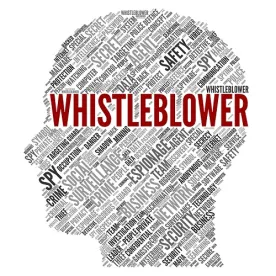In Somers v. Digital Realty Trust, Inc., the Supreme Court will likely resolve a split that has developed among the Circuit Courts regarding the scope of whistleblower protections under the Dodd-Frank Wall Street Reform and Consumer Protection Act of 2010, 15 U.S.C. § 78U-6) (Dodd Frank). Specifically, the Court will address whether the anti-retaliation provision of Dodd Frank applies to internal whistleblower or, rather, is limited to those who disclose information externally to the Securities and Exchange Commission (SEC).
At one end of the spectrum is the Fifth Circuit, which has strictly applied the definition of “whistleblower” (i.e., external disclosure to the SEC) from one subsection of Dodd Frank to its anti-retaliation section. At the other end are the Second and Ninth Circuits, which have held, consistent with the broader interpretation adopted by the SEC through its own regulations, that Dodd Frank affords protections to those who report internally as well as those who report to SEC.
Here in Massachusetts, we do not have an appellate decision from First Circuit on this issue. However, the U.S. District Court for Massachusetts has addressed this matter, agreeing with the broader interpretation adopted by the Second and Ninth Circuits. In Ellington v. Giacoumakis, 977 F. Supp. 2d 42, 42 (D. Mass. 2013), Judge Stearns denied an employer’s motion for judgement on pleadings, finding that the employee’s internal complaints to the company’s compliance officer about violations of securities law were sufficient to state a claim for retaliation under Dodd Frank.
Stay tuned to see if the Supreme Court agrees.




 />i
/>i

